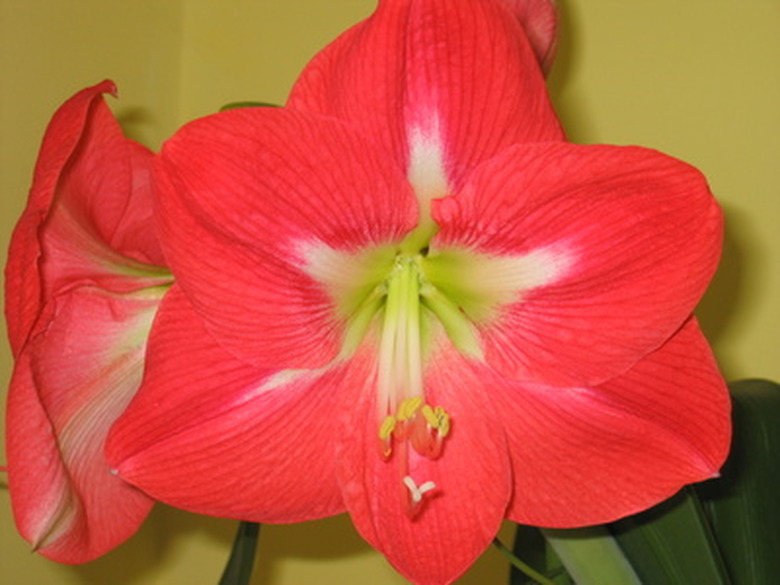Which Bulb Flowers Grow In Florida?
Unlike most parts of the United States, Florida experiences tropical weather, similar to the Caribbean. The climate of North and Central Florida is humid subtropical, while South Florida has a tropical climate. Florida's rainy season lasts from June through September. Because of Florida's climate, planting bulbs is a little different from other places. Some bulbs do better than others in this region.
Amaryllis
Originating from South America's tropical regions, Amaryllis (Hippeastrum) is a perennial, and it is one of the easiest bulbs to bloom, whether indoors or out. It produces clusters of huge flowers that are look like a lily. Amaryllis grows up to 2 feet tall and may require staking to prevent blooms from drooping. The different varieties include solid red, white, pink, salmon and orange. Some patterned or multicolored varieties include shades of pink or red with white.
- Unlike most parts of the United States, Florida experiences tropical weather, similar to the Caribbean.
- Some patterned or multicolored varieties include shades of pink or red with white.
Plant amaryllis bulb 2 inches deep in the garden or halfway if planting in container (pot should be 2 inches larger). Amaryllis requires a warm place with morning sun or filtered light to provide enough heat that will aid in stem development. The ideal planting temperature is 68 to 70 degrees Fahrenheit between October and April. Flowers will bloom in seven to 10 weeks. Flowering time is longer during the winter than spring.
Amazon Lily
Eucharist grandiflora, commonly called Amazon lily or eucharist lily, is an evergreen that produces masses of fragrant, waxy, white flowers from December through spring. It forms tight, compact rosettes of deep green, glossy, ovate leaves up to several inches wide. Leaf arrangement emerges mostly from the soil, usually without a stem. Amazon lilies makes good cut flowers, potted plants and ground covers. They grow up to 2 feet high and spread up to 2 feet wide. You can plant them in zones 10 and 11 year-round, preferring filtered light or 50 percent shade.
- Plant amaryllis bulb 2 inches deep in the garden or halfway if planting in container (pot should be 2 inches larger).
- You can plant them in zones 10 and 11 year-round, preferring filtered light or 50 percent shade.
Providing at least four weeks at 80 to 85 degrees Fahrenheit followed by a minimum temperature drop of 14 degrees Fahreneheit will induce flowering. Keep the temperatures constant to ensure that the bulbs will flower. The plants should flower after 12 weeks at the lower temperatures. Repeating the high temperature treatment should induce the Amazon lily to flower twice per year. Withholding water will cause the foliage to senesce and may induce flowering.
Blood Lily
Blood lily, sometimes called torch lily, is among the easiest bulbs to force in south Florida. This perennial produces hundreds of small, red flowers, which bloom from April through July. Some species produce red, pink or white flower clusters. The flower clusters appear on stout, solid, 1-foot stalks, often angular above and followed by rosettes of dark green, undulate leaves. Under the shade, these leaves remain dark and glossy-green all summer. During fall, some stems produce small, round, bright orange-red fruits, which contain several seeds that take about six months to germinate.
- Providing at least four weeks at 80 to 85 degrees Fahrenheit followed by a minimum temperature drop of 14 degrees Fahreneheit will induce flowering.
- Under the shade, these leaves remain dark and glossy-green all summer.
Blood lilies can grow anywhere in Florida as garden perennials, but need winter mulch in the coolest parts of north Florida. It can adapt to warm temperate areas with cool, dry winters and hot, wet summers, preferring a dry, winter dormant period and a bit of shade in south Florida. The blood lily makes an excellent foliage plant even after the bloom dies.
